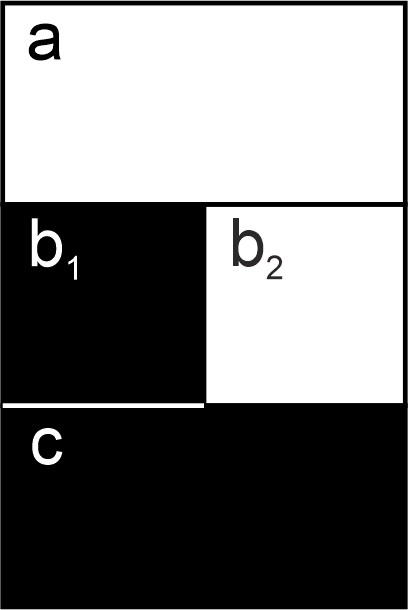- Title: Contemplations, Fate and Accidence Reflected in Choice.
- Author: Arvindus.
- Publisher: Arvindus.
- Copyright: Arvindus, 2017, all rights reserved.
- Index: 201706231.
- Edition: html, first edition.
§
Necessity and contingence are two important concepts in academic philosophy. A necessity is there understood as the only way something can be while a contingence there is understood as one of the multiple ways something can be. Thus from the perspective of earlier contemplations on fate, choice and accidence we may recognize necessity in fate and contingence in accidence. A fate is the only way something can be while an accidence is one of the multiple ways something can be.
Now it was contemplated earlier that choice relates fate to accidence.1 Choice stretches itself, so to speak, from fate to accidence and from accidence to fate as the relation between these two. On the one side choice touches fate and on the other side it touches accidence. Now it was attested that choice is of these three the characteristic for human individuals, with fate being characteristic for supra-humans and accidence being characteristic for sub-humans.2 It was however also attested that choice is only pure choice at the middle stage of human evolution.3 It can be said that ordinary humanity in its choosing is still much affected by accidence, that aspirants and disciples are close to pure choice and that initiates are much affected by fate in their choice.
Further it was also brought to the fore that choice and karma are the same and that they are constituted by a cause and an effect, which again can both be divided in subjectivity and objectivity, resulting in the fourfold of subjective cause, objective cause, objective effect and subjective effect, which again are mediated by action and experience.4 A subjective cause is related to an objective cause by action and an objective effect is related to a subjective effect by experience.
Now in the above mentioned occurrences within choice can be recognized reflections of accidence and fate. In the action relating a subjective cause to an objective cause can be recognized accidence. For the chosen action to be performed is one of the multiple actions which could have been performed. But in the experience a reflection of fate can be recognized because the regarded experience is the only way in which the human could be affected.
Now one may say, and in new age cults it is often said, that what matters is not what happens to you but how you cope with it. This is partly true, but the manner of coping does not undo the nature of the experience. The manner of coping should in such a saying rather be understood as a new choice on itself. Basically the nature of the one individual consciousness determines the nature of an action, which under the law of karma determines the nature of how that same consciousness shall experience. And all this with the goal to increase the range and the refinement of that consciousness. Out of an unperfected consciousness a devious action may arise. This deviousness will bounce back to the consciousness in an experience of a same nature and the consciousness will learn to avoid devious actions because it has learnt their nature. The range and refinement of the understanding have increased. That similar objective happenings may be differently experienced by different people may be true, but this difference is related to the differences in consciousness. In all cases the nature of the experiences can be traced back to the nature of previous actions.
The above may be depicted in a figure like below.

Figure 1.
In this figure 1 'a' stands for fate, 'c' for accidence and 'b' for choice, whereby 'b1' stands for cause and 'b2' for effect. We see how the black accidence is black reflected in the cause of choice and the white fate is white reflected in the effect of choice. It are these reflections which give rise to confusion between karmic effects and fate and to the erroneous statements that in choice all actions are possible. This latter is not the case because it are the particularities and the contents of the consciousness which determine the nature of choices. Multiple actions are possible, but not all actions, for actions draw only from the contents of consciousness.
Now this reflection of fate and accidence in choice must not be confused with the affection of choice by fate and accidence as mentioned in 'The Triangle of Choice'.5 The aforementioned affection of choice by fate and accidence regards choice as a whole, while the aforementioned reflection of fate and accidence in choice has to do with the dual parts in choice, being cause and effect.
With this differentiation between the affection of choice and the reflection in choice then this contemplation may be concluded.